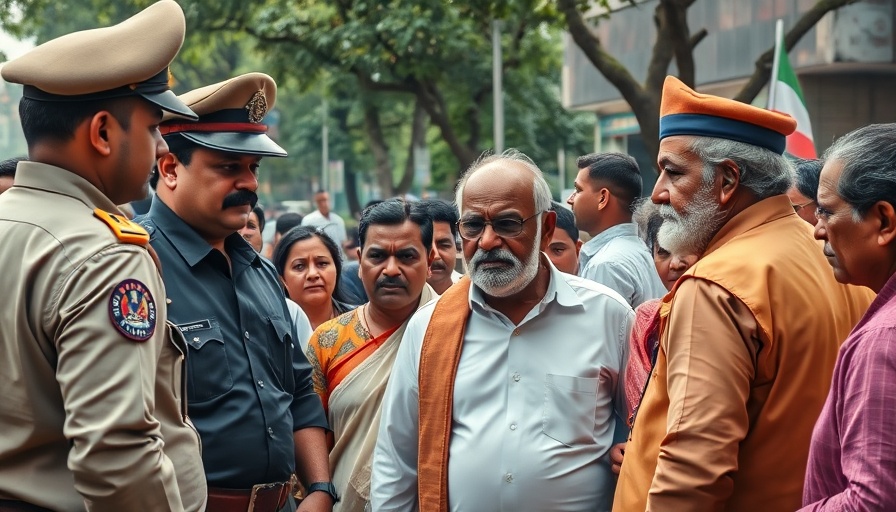
The Tension in Lagos: A Political Standoff
The recent blockade of a planned political rally in Lagos has brought significant attention to the growing tensions surrounding the 2023 elections. Gbadebo Rhodes-Vivour, the Labour Party's governorship candidate, accused the police of deliberately obstructing his formal declaration of allegiance to the African Democratic Congress (ADC). This incident underscores the precarious nature of political expression in Nigeria, raising questions about the integrity of the electoral process ahead.
In '2027 Elections: Police Block Gbadebo Rhodes-Vivour’s ADC Rally in Lagos', the discussion dives into the political tension in Lagos, exploring key insights that sparked deeper analysis on our end.
Events Unfold: Actions of the Police
According to Rhodes-Vivour, heavy police presence barricaded the venue in Alimosho, despite prior notifications sent to local law enforcement. This action has been described as politically motivated, aimed at silencing opposition voices. The Labour Party candidate highlighted efforts to engage with the Lagos State Police Commissioner, which were ultimately unsuccessful, leading to heightened concerns over political suppression in the state.
Violence Erupts: The ADC's Experience
The ADC’s organizing secretary, Dr. Muhammad Oiddi, corroborated Rhodes-Vivour's allegations, revealing that they had attempted to relocate the event multiple times, only to face similar police responses. These measures resulted in verbal confrontations and physical altercations, leaving several members of the ADC injured, while property damage was reported. Such violence is troubling, reflecting a broader narrative of unrest that haunts the landscape of Nigerian politics.
A Threat to Democracy or Governance?
The police action during the ADC's rally raises significant constitutional questions. Critics argue that the events are a direct infringement upon citizens' rights to peaceful assembly, echoing a broader sentiment that the governance framework is at odds with democratic principles. In the context of ongoing national security issues, the narrative surrounding political gatherings in Nigeria becomes increasingly complicated, as such events could be construed as potential flashpoints for violence.
Calls for Accountability: The Politicians' Stance
In light of the events, the ADC is now calling for thorough investigations into the police's conduct. Dr. Oiddi expressed the necessity of accountability within law enforcement, urging that security agencies should prioritize protecting citizens rather than participating in political suppression. The ADC’s organized response reflects a determined stance against injustices and a belief in the need for fundamental changes to ensure a more dynamic political environment.
The Broader Implications for Nigerian Politics
Looking ahead, this incident signifies a pivotal moment in Lagos politics as the 2023 elections approach. The emergence of the ADC as a formidable political entity challenges the status quo and demonstrates the evolving political landscape within Nigeria. As political alliances shift, the ADC's focus on grassroots movements and securing citizens’ rights could inspire a new wave of civic engagement amongst the electorate.
What This Means for Nigeria's Future
The blockage of Rhodes-Vivour's rally in Lagos is emblematic of the struggles faced by emerging political parties in Nigeria. It exacerbates fears of electoral violence, with citizens increasingly anxious about their freedom of expression being curtailed. The potential role of the ADC in rewriting this narrative could determine the health of democracy in Nigeria and signal a transition toward more transparent and inclusive governance.
Concluding Thoughts: Action Required
As Nigerians move closer to the pivotal 2023 elections, it is essential for civil society, political parties, and international bodies to rally behind efforts that promote a fair electoral process. The tension in Lagos is a reminder of the fragile fabric of peace in Nigeria, urging all stakeholders to facilitate dialogue and safeguard the rights of all citizens to peacefully assemble and express their political views.
 Add Row
Add Row  Add
Add 


Write A Comment